
Discover the Timeless Charm of Old Town Ipoh
Nestled in the heart of Perak, Malaysia, Old Town Ipoh is a delightful blend of rich heritage and vibrant culture. Known for its colonial-era architecture, this neighbourhood is a living museum that transports visitors back in time. The streets are lined with beautifully preserved pre-war buildings, each narrating tales of the past. The iconic Ipoh Railway Station, often dubbed the 'Taj Mahal of Ipoh,' is a stunning example of early 20th-century British colonial architecture. Beyond its historical allure, Old Town Ipoh is a haven for food enthusiasts. The neighbourhood is famed for its culinary delights, particularly the mouth-watering Ipoh white coffee and dim sum. Wander through the bustling streets and you'll find an array of traditional coffee shops and hawker stalls serving up local delicacies that are sure to tantalize your taste buds. Art lovers will rejoice in the vibrant street art scene that adorns the walls of Old Town. The murals, created by renowned artists, add a modern twist to the historic setting and provide perfect photo opportunities. Additionally, the neighbourhood is home to several quaint shops and artisanal boutiques, offering unique souvenirs and local crafts. For those seeking a deeper understanding of the local culture, a visit to the Han Chin Pet Soo Museum is a must. This museum offers a fascinating glimpse into the lives of the Hakka miners who once thrived in Ipoh. With its mix of history, culture, and culinary delights, Old Town Ipoh promises an unforgettable experience for every traveller.
Local tips in Old Town
- Visit early in the morning to avoid the afternoon heat and enjoy a leisurely breakfast at a local coffee shop.
- Wear comfortable walking shoes as the best way to explore the neighbourhood is on foot.
- Don't miss the street art trail; it provides a great way to discover hidden corners of Old Town.
- Try the famous Ipoh white coffee at one of the traditional coffee shops for an authentic taste experience.
- Check the opening hours of the Han Chin Pet Soo Museum in advance as it requires prior booking.
Discover the Timeless Charm of Old Town Ipoh
Nestled in the heart of Perak, Malaysia, Old Town Ipoh is a delightful blend of rich heritage and vibrant culture. Known for its colonial-era architecture, this neighbourhood is a living museum that transports visitors back in time. The streets are lined with beautifully preserved pre-war buildings, each narrating tales of the past. The iconic Ipoh Railway Station, often dubbed the 'Taj Mahal of Ipoh,' is a stunning example of early 20th-century British colonial architecture. Beyond its historical allure, Old Town Ipoh is a haven for food enthusiasts. The neighbourhood is famed for its culinary delights, particularly the mouth-watering Ipoh white coffee and dim sum. Wander through the bustling streets and you'll find an array of traditional coffee shops and hawker stalls serving up local delicacies that are sure to tantalize your taste buds. Art lovers will rejoice in the vibrant street art scene that adorns the walls of Old Town. The murals, created by renowned artists, add a modern twist to the historic setting and provide perfect photo opportunities. Additionally, the neighbourhood is home to several quaint shops and artisanal boutiques, offering unique souvenirs and local crafts. For those seeking a deeper understanding of the local culture, a visit to the Han Chin Pet Soo Museum is a must. This museum offers a fascinating glimpse into the lives of the Hakka miners who once thrived in Ipoh. With its mix of history, culture, and culinary delights, Old Town Ipoh promises an unforgettable experience for every traveller.
Iconic landmarks you can’t miss
Birch Memorial Clock Tower
Explore the Birch Memorial Clock Tower in Ipoh, a stunning historical landmark showcasing Malaysia's colonial past amidst vibrant local culture.
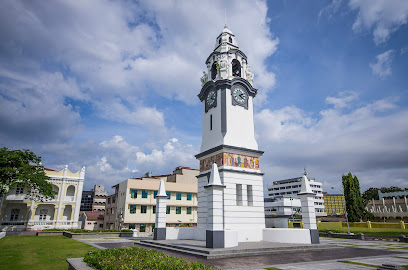
Ipoh Mural - Old Town Relieves Nostalgia with Trishaw
Explore the vibrant murals in Ipoh's Old Town, a cultural gem showcasing the city's artistic heritage and rich history through captivating street art.
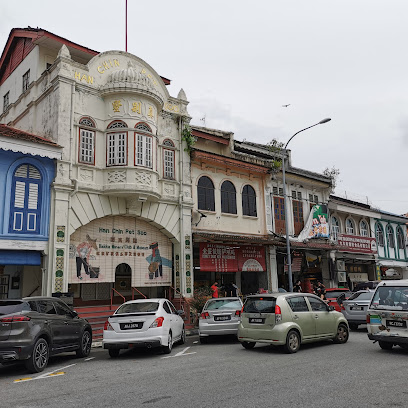
Ipoh World at Han Chin Pet Soo
Explore the captivating history of Ipoh at Han Chin Pet Soo, a historical landmark that reveals the city's rich cultural heritage and the legacy of its tin mining era.
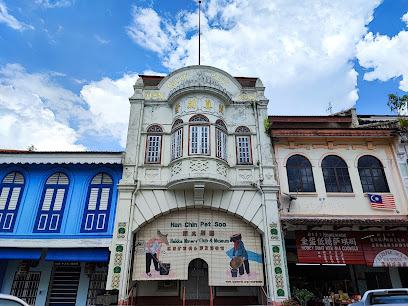
22 Hale Street Heritage Gallery
Explore the vibrant history of Ipoh at 22 Hale Street Heritage Gallery, a cultural gem showcasing local art, artifacts, and more.
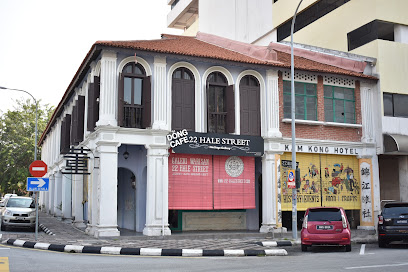
Time Tunnel Ipoh
Discover the rich history of Ipoh at Time Tunnel Ipoh, a museum filled with fascinating artifacts and nostalgic memorabilia.
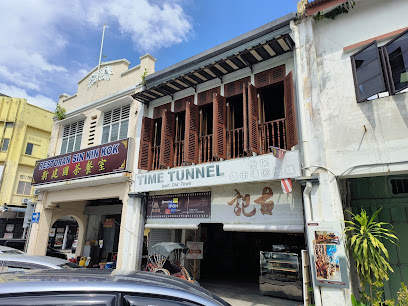
Ipoh Cultural Corridor
Discover the rich heritage and vibrant street art of Ipoh Cultural Corridor, where culture meets creativity in Malaysia's historical heart.
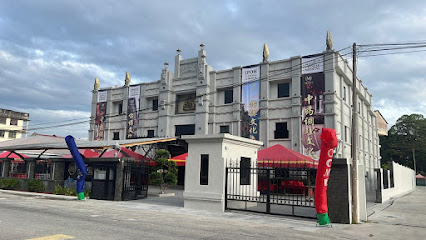
People's Park, Old Town
Experience tranquility and culture at People's Park in Ipoh's Old Town, a serene retreat featuring lush landscapes and historical charm.
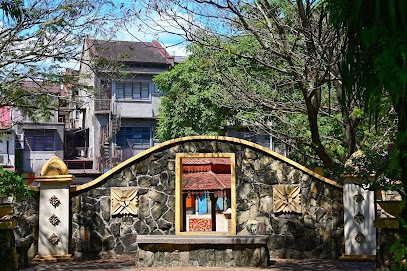
Ipoh War Memorial
Explore the Ipoh War Memorial, a serene historical landmark honoring sacrifices made during the war, nestled in the heart of Ipoh, Perak.
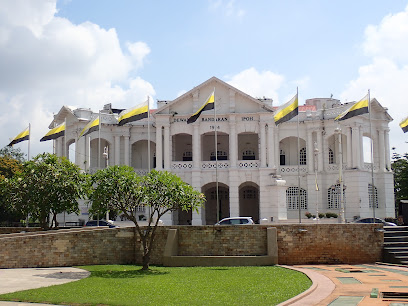
Made In Ipoh
Explore the rich heritage of Ipoh at Made In Ipoh, a cultural museum showcasing local history, crafts, and interactive exhibits for all ages.
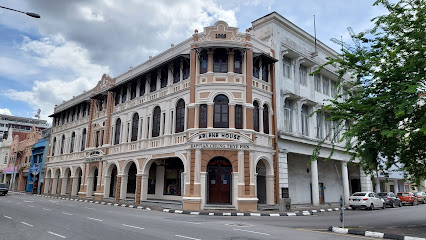
Old Resting Place
Experience the enchanting Old Resting Place in Ipoh, a historical landmark that showcases the rich heritage and architectural beauty of Perak.
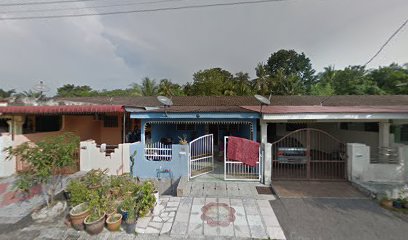
Unmissable attractions to see
Birch Memorial Clock Tower
Explore the Birch Memorial Clock Tower in Ipoh, a historical landmark showcasing colonial architecture and rich local heritage.
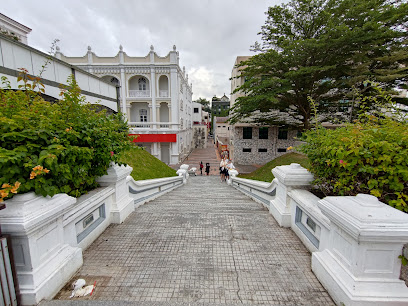
Ipoh War Memorial
Explore the Ipoh War Memorial, a historical landmark that honors the sacrifices of soldiers, set in a serene environment perfect for reflection and photography.
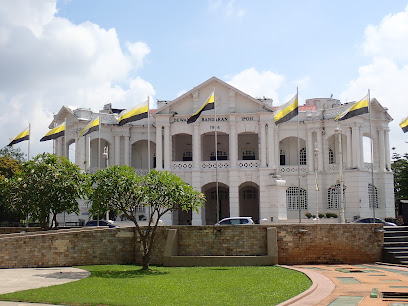
Lorong Seni @ Lorong Panglima, Ipoh
Explore the vibrant Lorong Seni in Ipoh, where colorful murals and local artistry bring the city's culture to life in a charming street atmosphere.
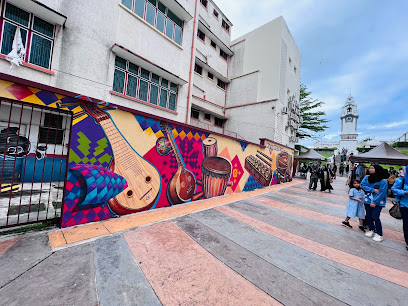
Essential places to dine
Plan B Restaurant | Ipoh
Experience the vibrant flavors of Asian Fusion at Plan B Restaurant in Ipoh - where culinary creativity meets comfort.
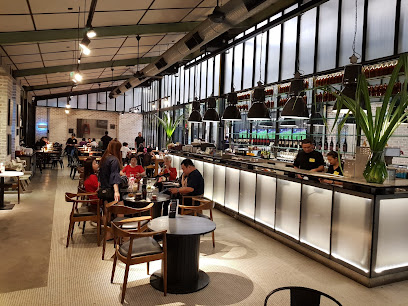
Restaurant Sri Aryaa Bhavan Ipoh
Discover authentic South Indian cuisine at Sri Aryaa Bhavan in Ipoh Old Town - a delightful experience awaits every food lover.
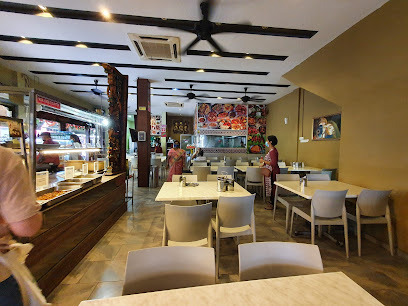
Little Elephant
Discover authentic Thai cuisine at Little Elephant in Ipoh, where every dish tells a story of flavor and tradition.
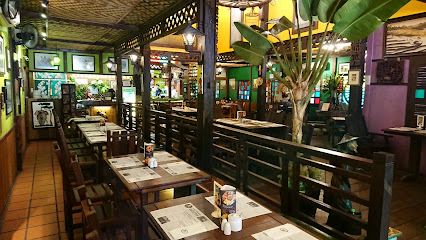
OldTown White Coffee (Greentown Outlet)
Experience authentic Malaysian cuisine and the famous white coffee at OldTown White Coffee in Greentown Avenue.
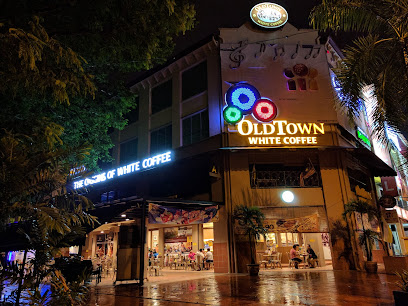
Atapas
Discover Atapas in Ipoh: Where Fine Dining Meets Exquisite Western Cuisine in an Elegant Ambiance.
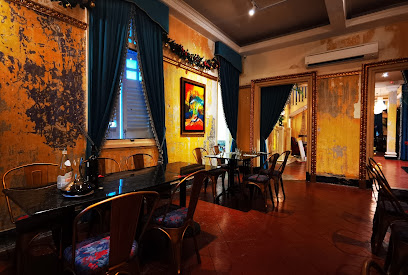
OLD TOWN CAPATI
Savor authentic Indian flavors at Old Town Capati, Ipoh's favorite destination for delicious South Indian cuisine.
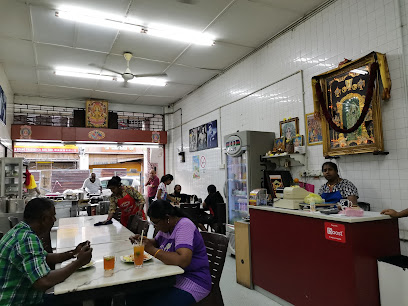
Memories Ipoh by Morel Restaurant
Experience delightful Western cuisine in the heart of Ipoh's historic Old Town at Memories Ipoh by Morel Restaurant.
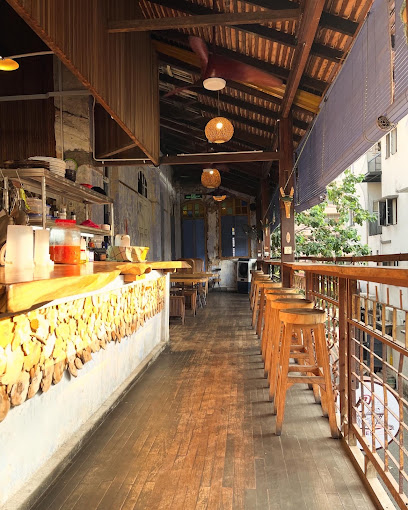
Old Town Kitchen Cafe
Discover authentic Malaysian cuisine at Old Town Kitchen Cafe in Ipoh - where tradition meets modern dining.
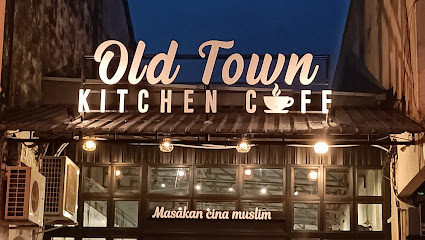
Old Street Curry Mee House
Discover the authentic taste of Indian cuisine at Old Street Curry Mee House – where every bowl of curry mee tells a delicious story.
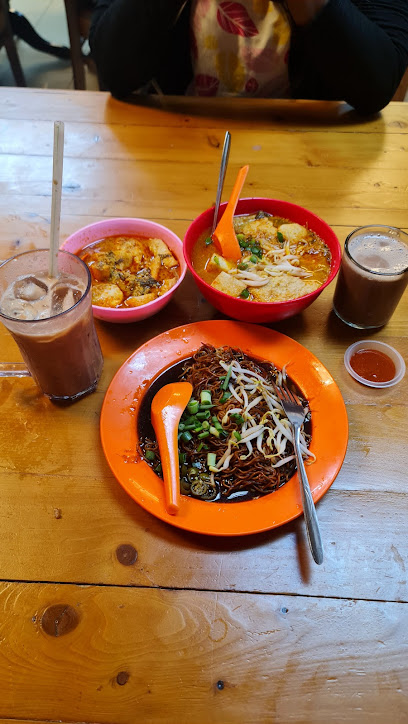
Oldtown Beerhole Bistro and Cafe
Experience delightful dining at Oldtown Beerhole Bistro and Cafe in Ipoh—where cozy ambiance meets exquisite flavors.
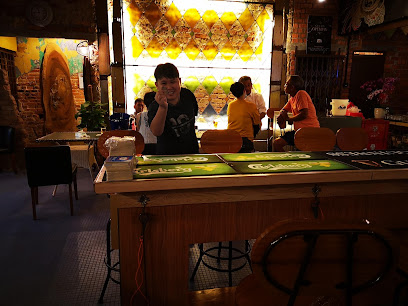
Markets, malls and hidden boutiques
The Store @ Jalan Dato Onn Jaafar
Experience local flavors and a wide selection of goods at The Store @ Jalan Dato Onn Jaafar, your go-to supermarket in Ipoh.
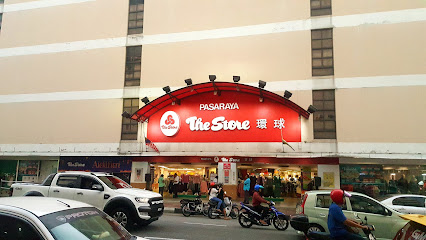
STG Ipoh Oldtown
Experience the art of tea at STG Ipoh Oldtown, where tradition meets modernity in a charming boutique setting.
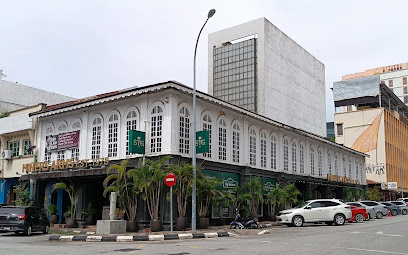
Vintage Ipoh Gallery
Explore the rich heritage of Malaysia with a visit to Vintage Ipoh Gallery, where timeless antiques tell captivating stories.
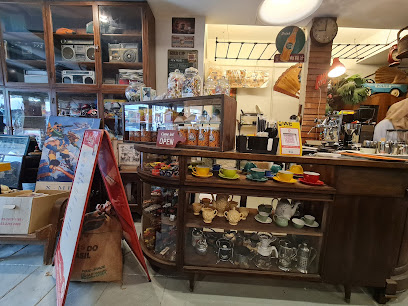
KOOKEEIPOHOLDTOWN
Discover the flavors of Ipoh at Koo Kee Old Town - a confectionery gem blending tradition and taste in every bite.
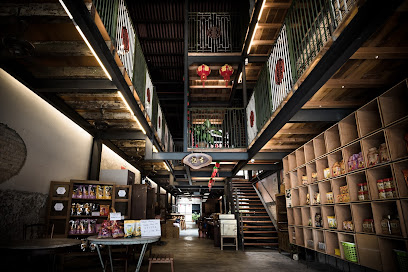
What To Wear 2 @ Ipoh Old Town
Experience the essence of Malaysian fashion at What To Wear 2 in Ipoh Old Town, a boutique offering unique styles and cultural flair.
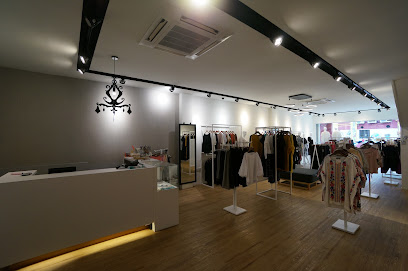
IPOH VINTAGE STORE
Explore unique fashion at Ipoh Vintage Store, where vintage charm meets modern style in the heart of Malaysia.
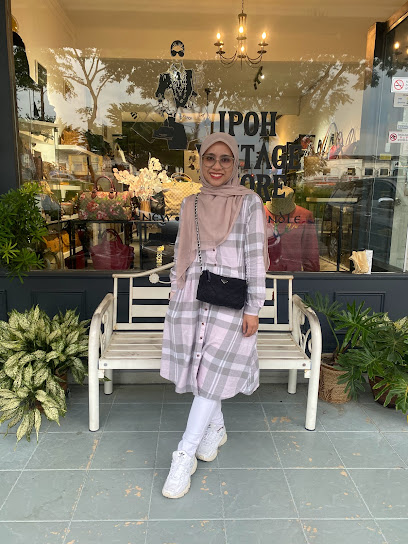
What To Wear 1 @ Ipoh Old Town
Discover fashion that embodies the spirit of Ipoh at What To Wear 1, a must-visit clothing store in the heart of Old Town.
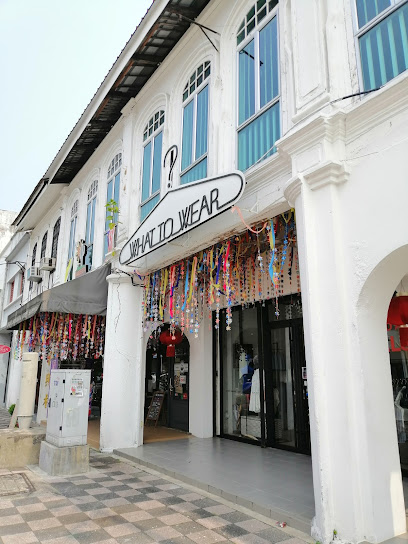
What To Wear 3 @ Ipoh Old Town
Explore the stylish offerings at What To Wear 3, a boutique in Ipoh Old Town, where fashion meets local culture and unique designs await.
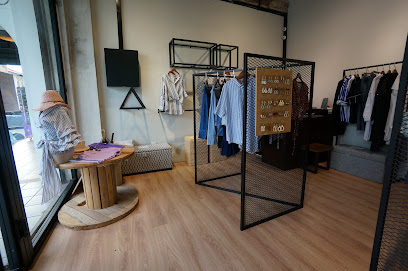
shop
Explore the vibrant clothing store in Ipoh, a fashion hub offering trendy styles and unique finds for every shopper's taste.
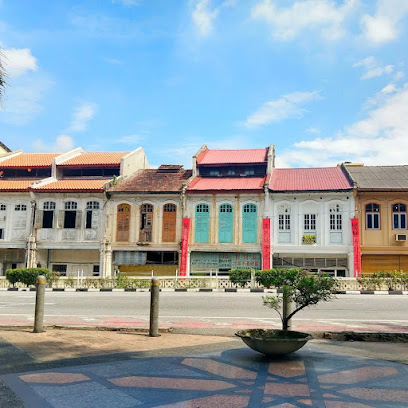
Po Ly Goldsmith & Jeweller Ipoh at Old Town
Explore exquisite craftsmanship at Po Ly Goldsmith & Jeweller in Ipoh's historic Old Town, where tradition meets elegance in every piece.

Essential bars & hidden hideouts
Euro House
Discover the vibrant Euro House in Taman Jubilee, Ipoh – a perfect blend of delicious Western cuisine and lively nightlife.
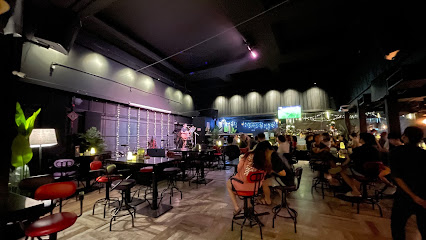
Bricks & Barrels Ipoh
Discover the vibrant nightlife of Ipoh at Bricks & Barrels, the ultimate pub with a beer garden, dance club atmosphere, and delicious Western cuisine.
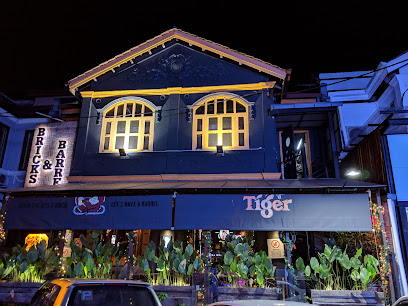
Healy Mac's Irish Bar
Discover Healy Mac's Irish Bar in Ipoh, where authentic Irish culture meets local charm with great food, drinks, and entertainment.
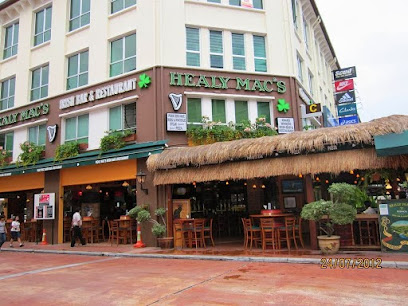
Rooftop Restaurant and Bar
Discover the Rooftop Restaurant and Bar in Ipoh: where stunning views meet an exquisite menu in a vibrant gastropub atmosphere.
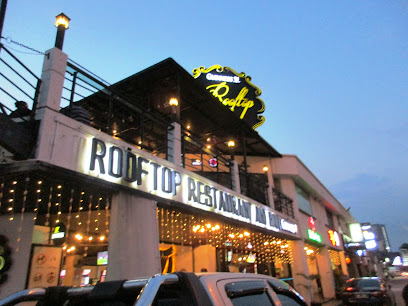
Tiga
Experience the vibrant nightlife of Ipoh at Tiga, a stylish cocktail bar offering unique drinks and a cozy speakeasy ambiance.
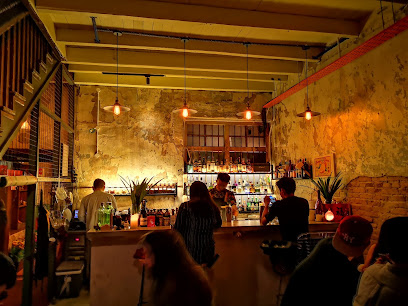
Viking Village Bar of Music | Pub | Bar | Bistro | Ipoh
Experience the vibrant nightlife at Viking Village Bar of Music in Ipoh, where delicious food and live music come together for an unforgettable night.
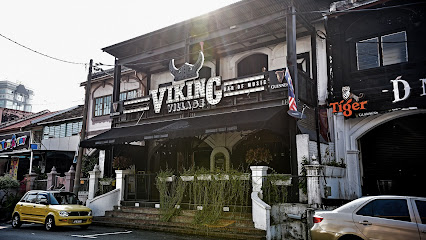
Atas Speakeasy
Experience innovative cocktails and a cozy atmosphere at Atas Speakeasy, the must-visit cocktail bar in Ipoh's Taman Jubilee.
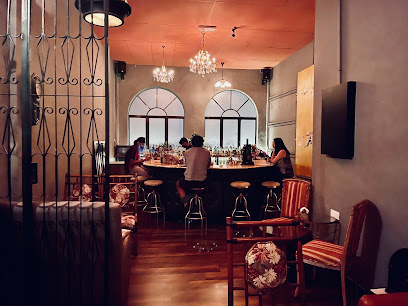
St. Patrick Irish Bar | Ipoh
Experience the Irish spirit at St. Patrick Irish Bar in Ipoh, offering exceptional drinks and a lively atmosphere for a memorable night out.
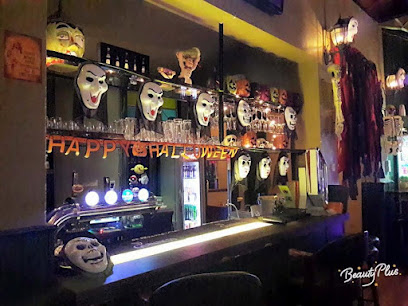
Sinhalese Bar
Discover the charm of Sinhalese Bar in Ipoh, where unique cocktails and a cozy atmosphere await every traveler.
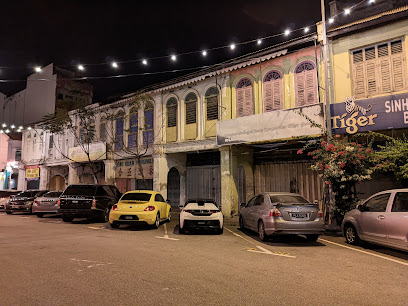
MINERS ARMS Ipoh Oldtown
Discover Miners Arms in Ipoh Oldtown for a vibrant pub experience filled with cocktails, wines, and unforgettable ambiance.
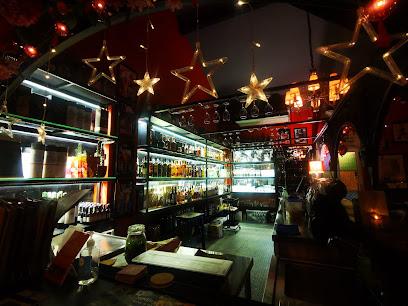
Local Phrases
-
- HelloSelamat pagi
[suh-lah-maht pah-gee] - GoodbyeSelamat tinggal
[suh-lah-maht teeng-gahl] - YesYa
[yah] - NoTidak
[tee-dahk] - Please/You're welcomeSila
[see-lah] - Thank youTerima kasih
[teh-ree-mah kah-see] - Excuse me/SorryMaaf
[mah-ahf] - How are you?Apa khabar?
[ah-pah kah-bahr] - Fine. And you?Baik. Dan awak?
[bah-eek. dahn ah-wahk] - Do you speak English?Boleh cakap Bahasa Inggeris?
[boh-leh chah-kahp bah-hah-sah eeng-geh-rees] - I don't understandSaya tidak faham
[sah-yah tee-dahk fah-hahm]
- HelloSelamat pagi
-
- I'd like to see the menu, pleaseBoleh saya lihat menu?
[boh-leh sah-yah lee-haht meh-noo] - I don't eat meatSaya tidak makan daging
[sah-yah tee-dahk mah-kahn dah-yihng] - Cheers!Sihat!
[see-haht] - I would like to pay, pleaseBoleh saya bayar?
[boh-leh sah-yah bah-yahr]
- I'd like to see the menu, pleaseBoleh saya lihat menu?
-
- Help!Tolong!
[toh-lohng] - Go away!Pergi jauh-jauh!
[pehr-gee jah-oo jah-oo] - Call the Police!Panggil polis!
[pahng-geel poh-lees] - Call a doctor!Panggil doktor!
[pahng-geel dohk-tohr] - I'm lostSaya sesat
[sah-yah suh-saht] - I'm illSaya sakit
[sah-yah sah-keet]
- Help!Tolong!
-
- I'd like to buy...Saya nak beli...
[sah-yah nahk beh-lee] - I'm just lookingSaya cuma tengok-tengok
[sah-yah choo-mah tehn-gohk-tehn-gohk] - How much is it?Berapa harganya?
[beh-rah-pah hahr-gahn-yah] - That's too expensiveTerlalu mahal
[tehr-lah-loo mah-hahl] - Can you lower the price?Boleh kurangkan harga?
[boh-leh koor-ahn-gahn hahr-gah]
- I'd like to buy...Saya nak beli...
-
- What time is it?Pukul berapa sekarang?
[poo-kool beh-rah-pah suh-kah-rahn] - It's one o'clockPukul satu
[poo-kool sah-too] - Half past (10)Setengah (sepuluh)
[suh-tehn-gah (suh-poo-loo)] - MorningPagi
[pah-gee] - AfternoonPetang
[peh-tahng] - EveningMalam
[mah-lahm] - YesterdaySemalam
[suh-mah-lahm] - TodayHari ini
[hah-ree ee-nee] - TomorrowEsok
[eh-sohk] - 1Satu
[sah-too] - 2Dua
[doo-ah] - 3Tiga
[tee-gah] - 4Empat
[uhm-paht] - 5Lima
[lee-mah] - 6Enam
[eh-nahm] - 7Tujuh
[too-joo] - 8Lapan
[lah-pahn] - 9Sembilan
[suhm-bee-lahn] - 10Sepuluh
[suh-poo-loo]
- What time is it?Pukul berapa sekarang?
-
- Where's a/the...?Di mana...?
[dee mah-nah] - What's the address?Berapa alamatnya?
[beh-rah-pah ah-lah-maht-nyah] - Can you show me (on the map)?Boleh tunjukkan saya (di peta)?
[boh-leh toon-jook-kahn sah-yah (dee peh-tah)] - When's the next (bus)?Bila bas seterusnya?
[bee-lah bahs suh-teh-roos-nyah] - A ticket (to ....)Sebuah tiket (ke ....)
[suh-boo-ah tee-keht (keh ....)]
- Where's a/the...?Di mana...?
History of Old Town
-
Ipoh's history dates back to the late 19th century when it was established as a tin mining town. The discovery of tin in the Kinta Valley in the 1850s attracted miners and traders from various regions, leading to rapid population growth and the development of Old Town as a commercial hub.
-
During the British colonial period, Ipoh experienced significant development, particularly in Old Town, characterized by its unique architectural styles. Buildings such as the Ipoh Railway Station (completed in 1917) and the Town Hall showcase a blend of colonial and local influences, reflecting the town's historical significance in the region.
-
In the late 19th and early 20th centuries, Old Town became a thriving center for tin mining commerce. Wealthy Chinese merchants established businesses and clans, contributing to the town's cultural diversity. This period saw the emergence of iconic kopitiams (coffee shops) that are still popular today.
-
During World War II, Ipoh, like many parts of Malaysia, was occupied by Japanese forces from 1942 to 1945. The occupation brought hardship to the residents of Old Town, leading to significant changes in the social structure and economy as many businesses struggled to survive.
-
After the war, Ipoh saw a revival in its economy, with Old Town serving as a focal point for cultural exchange and community life. The establishment of new businesses, restaurants, and cultural events helped to rejuvenate the area, preserving its historical identity while embracing modernization.
-
In recent years, efforts to conserve and promote the heritage of Old Town have gained momentum. The area has seen a resurgence in interest from both locals and tourists, leading to restoration projects that celebrate its rich history, cultural festivals, and the revival of traditional arts and crafts.
Old Town Essentials
-
Old Town Ipoh is easily accessible from various neighbourhoods in the city. If you are coming from Ipoh Railway Station, it is just a short 10-minute walk. Alternatively, local buses and taxis are available. For those staying in the more modern areas like Greentown or Ipoh Garden, expect about a 10 to 15-minute taxi ride. Grab services are also widely used throughout the city for convenience.
-
Old Town is compact and best explored on foot. Many attractions, street art, and food stalls are within walking distance. Bicycle rentals are available for those who prefer a quicker pace; look for local rental shops. Public buses operate in and around Ipoh, but within Old Town, walking or cycling is the most enjoyable way to soak in the atmosphere.
-
Old Town Ipoh is generally considered safe for tourists. However, as in any urban area, it is wise to stay vigilant, especially at night. Areas such as Jalan Dato' Onn Jaafar and the lanes behind the main tourist attractions can be quieter and should be approached with caution after dark. Keep an eye on your belongings in crowded places and avoid displaying valuable items.
-
In case of an emergency, dial 999 for police or ambulance services in Malaysia. The nearest hospital is Hospital Raja Permaisuri Bainun, located a short drive away. It is advisable to carry a copy of your travel insurance details and any necessary medical information. For minor health issues, there are pharmacies located throughout Old Town.
-
Fashion: Do wear comfortable shoes for walking; the streets can be uneven. Dress modestly, especially when visiting places of worship. Religion: Do be respectful of local customs; avoid loud behavior near religious sites. Public Transport: Do be patient and courteous. Don’t eat or drink in public transport. Greetings: Do greet locals with a smile; a nod or slight bow is appreciated. Eating & Drinking: Do try the local street food and drink from the famous white coffee shops. Don’t waste food; it is considered disrespectful.
-
To experience Old Town like a local, visit the morning markets for fresh produce and local snacks. Engage in conversations with the friendly shop owners; many enjoy sharing stories about their heritage. For an authentic meal, seek out the local hawker stalls and try dishes like chicken rice or curry mee. Don't miss the chance to explore the street art scene, which reflects the culture and history of Ipoh. Lastly, early mornings and late afternoons are ideal times to explore, avoiding the midday heat.
-
When visiting temples or mosques, it is essential to remove your shoes before entering. Women should dress modestly, covering shoulders and knees. It is polite to ask for permission before taking photographs of locals, especially in more secluded areas. Always use your right hand for giving and receiving items, as the left hand is traditionally considered unclean.
-
Old Town Ipoh is renowned for its culinary delights. Don't miss trying the iconic Ipoh white coffee, which differs from regular coffee due to its unique roasting process. Additionally, sample local delicacies like 'Nasi Kandar' and 'Chao Kway Teow'. Street food is abundant, and it's advisable to eat where the locals eat, as high turnover implies freshness and safety.
Nearby Cities to Old Town
-
Things To Do in Cameron Highlands
-
Things To Do in Penang
-
Things To Do in George Town
-
Things To Do in Kuala Lumpur
-
Things To Do in Kota Bharu
-
Things To Do in Langkawi
-
Things To Do in Kuala Terengganu
-
Things To Do in Satun
-
Things To Do in Kuantan
-
Things To Do in Medan
-
Things To Do in Malacca
-
Things To Do in Trang
-
Things To Do in Nakhon Si Thammarat
-
Things To Do in Krabi
-
Things To Do in Johor Bahru












